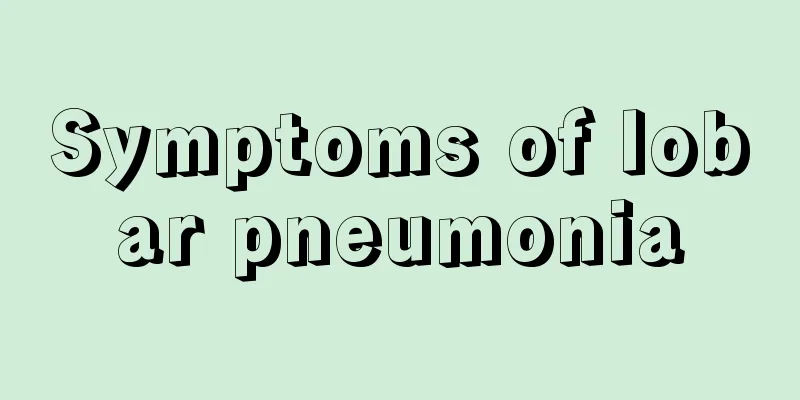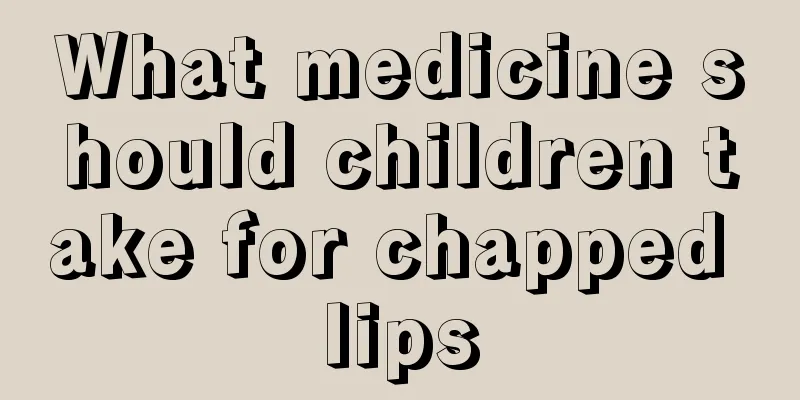Symptoms of lobar pneumonia

|
Lobar pneumonia is a type of pneumonia, which can be said to be a very serious type of pneumonia. Its incidence rate is also very high, and the onset is sudden, which makes it very unpredictable. For this disease, we should detect it early and treat it early. Lobar pneumonia is generally treated with drugs. Because its disease progresses relatively rapidly, we should pay more attention to its symptoms in normal times so that we can control it in time. Symptoms and signs 1. Sudden onset, severe symptoms of systemic poisoning, chills, high fever, cough, purulent sputum, bloody sputum, difficulty breathing, cyanosis, etc. 2. The disease progresses rapidly, with changes in mental status, delirium, coma and even shock, which are common in patients with hematogenous spread due to extrapulmonary infection. 3. Hospital-acquired infections occur in postoperative intensive care units and long-term hospitalized patients. The onset is insidious and the symptoms are masked by the underlying disease, so they are atypical and often overlooked. The respiratory symptoms are mild, with low fever and coughing up a small amount of purulent sputum. But the condition changes rapidly. 4. Hematogenous staphylococcal pneumonia is secondary to the hematogenous spread of extrapulmonary infection, with severe symptoms of systemic poisoning, and symptoms and signs of primary lesions or infection in other parts of the body may be found. In addition, empyema may occur if the pleura is involved. 5. In the early stage of physical signs, local breath sounds are reduced, and dry and wet rales are heard. If there is empyema, there will be dullness on percussion and breath sounds are reduced or disappeared. If there is pneumothorax, there will be tympanic percussion and breath sounds are reduced or disappeared. Medication (1) Empirical treatment: Select drugs based on the source of infection (community or hospital) and recent drug sensitivity data in the region. When community-acquired pneumonia is suspected to be caused by Staphylococcus aureus, penicillin should not be used. Instead, first-generation cephalosporins such as oxacillin and cefazolin should be used. If the effect is not good, glycopeptide antibiotics can be considered for treatment when further tests related to etiological diagnosis are performed. If hospitalized patients are suspected of having hospital-acquired staphylococcal pneumonia, glycopeptide antibiotics are the first choice for treatment. During empirical treatment, every effort should be made to obtain the pathogens, and the treatment plan should be modified in a timely manner according to their drug sensitivity. (2) Targeted treatment: When the pathogen is cultured and confirmed to be Staphylococcus aureus, the drug should be selected based on its drug sensitivity results. If the strain is methicillin-sensitive, oxacillin, cloxacillin, cefazolin or cephalothin can be used; if the isolated bacteria are resistant to methicillin, glycopeptide antibiotics are preferred Through the above introduction to the symptoms, signs and medication of lobar pneumonia, we understand that lobar pneumonia develops suddenly, and there are no signs of illness at all. Moreover, when the disease occurs, the whole body poisoning is generally serious, and high fever, chills, difficulty breathing and other problems may also occur. We should be vigilant about this disease and prevent and treat it. |
<<: What are the symptoms of zinc deficiency in children?
>>: What is the best way to treat rhinitis in children?
Recommend
What to do if your toddler cries while sleeping at night
Some young children have trouble falling asleep a...
What to do if your toddler is a picky eater
Children nowadays are basically spoiled by their ...
What to do if your child doesn't sleep at night
Children are definitely different from adults. Th...
Child being tickled
In life, there are many children playing with eac...
Height of a two-year-old baby
A baby's height is related to many factors, e...
What should I do if my child doesn’t urinate for a day?
Urination is a normal metabolism. People need to ...
Why do children have yellow hands and feet when they have a fever?
Generally speaking, many parents will find that t...
How to treat chronic tonsillitis in children
If a child keeps coughing and has a sore throat, ...
What diseases are related to the blue veins on the baby's head?
Parents pay a lot of attention to their children,...
What are the treatments for cerebral palsy in children?
Cerebral palsy is a disease that is relatively di...
Symptoms of lung heat in children
The cause of children's lung heat is closely ...
Reasons why children's palms and soles sweat
Children are the apple of their parents’ eyes. Th...
Frequent nosebleeds in children
Children's bodies are often prone to illness ...
3-year-old baby has red blood on his face
Many people living in plateau areas often have re...
What to do if your child has a stomachache and fever
We all know that our baby is the apple of our eye...









